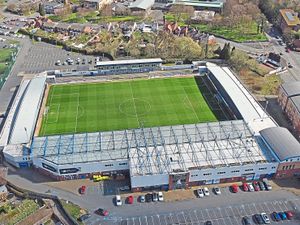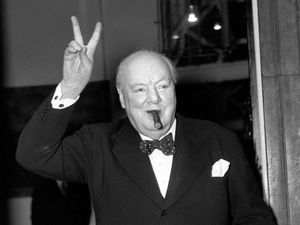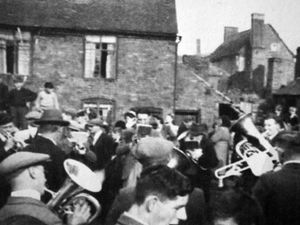Talking Telford: Bucks' new American investors strike a sensible tone for the mad world of football
Rejoice, AFC Telford United fans - the Americans are here. Hooray - or should that be oo-rah?

I refer to the exciting news which broke over the last few days that a consortium of high-flying American businessmen have pooled their money and bought 21 per cent of Shropshire’s best football club, with the deal spearheaded by a local lad done good in Wellington-born Hollywood producer Chris Ball. And all just a few short weeks after I wrote in these pages about my quest to lead the club to the Premier League in a game of Football Manager. I’m not saying it’s thanks to this column that these swanky movers and shakers were suddenly inspired to live my dream of taking Telford to the top and rushed to the bank, but I’m not NOT saying it…
If we’re being honest, the timing must be entirely coincidental. I’m not a man of business but it seems unlikely that a deal with so many moving parts - the consortium is made up of 15 US businessmen from a wide range of backgrounds - hasn’t been in the pipeline for a very long time. It’s a thrilling time nonetheless, and the more excitable among us have already been dreaming about what the investment could mean for the club.
High-profile recent examples of Stateside money flowing into the English and Welsh game might be instructive, or they might not: we probably shouldn’t expect our own high-production feel-good Fox documentary in the style of Rob McElhenney and Ryan Reynolds’ project at Wrexham any time soon (‘Welcome to Wellington’, anyone?) or for a billion-pound hose to suddenly be switched on to lure international talent to the New Bucks Head in spades, a la Todd Boehly and Clearlake Capital at Chelsea. Given the deal at Telford is actually only for a little over a fifth of the club, and Mr Ball’s first public statement about his vision for the Bucks was, for the mad world of football ownership, remarkably measured (“in our minds, the football club has to be sustainable and must endeavour to operate on a break even or near break even basis”) the scale of any change is likely to be slow and sensible. But in the mad world of football ownership, where cocksure businesspeople can easily overreach and lose millions on a club in months, in the process doing irreparable damage to the fabric of the communities they’re temporarily joining, that is surely a good thing.




